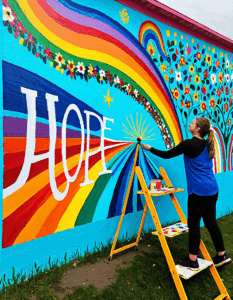The Essential Roles of Mental Health Services in 2024
As awareness about mental health continues to rise, the importance of mental health services in supporting individuals and families cannot be overstated. Mental health services play a crucial role, particularly in addressing the devastating effects of addiction. In this in-depth article, we’ll explore the vital roles these services play and the incredible support they offer.
The Critical Function of Crisis Intervention
Crisis intervention is one of the primary roles of mental health services. Organizations like Crisis Text Line and the National Suicide Prevention Lifeline provide immediate assistance to individuals in distress. Crisis intervention helps de-escalate potentially life-threatening situations and offers a gateway to long-term support.
These services are lifelines during moments of extreme vulnerability. The immediate connection to someone who understands and can help manage the crisis is invaluable. Moreover, these services often pave the way for ongoing support, connecting individuals to resources and services that address mental health and addiction comprehensively.
| Service Type | Description | Providers Involved | Treatment Options | Benefits | Access |
| Community Mental Health Teams (CMHTs) | Supports individuals with mental health issues residing in the community and their carers. | A multi-disciplinary team: community psychiatric nurse (CPN), psychologist, occupational therapist, counsellor, community support worker, social worker. | Supportive counselling, medication management, crisis intervention, case management. | Comprehensive support network; Regular follow-ups and continuous care; Integrated approach. | Referral through primary healthcare provider. |
| Therapy/Counseling | Structured and supportive dialogue to address mental health issues. What you expect can be based around ADDICTION | Licensed therapists, counselors, psychologists. | One-on-one sessions, group therapy, family therapy, cognitive behavioral therapy (CBT), and more. | Non-invasive, personalized care; Builds coping strategies; Enhances emotional resilience. | Self-referral or healthcare provider referral. |
| Psychiatric Services | Medical management of mental health conditions, particularly those requiring medication. | Psychiatrists, psychiatric nurse practitioners. | Diagnosis, medication prescription, follow-up reviews. | Medical supervision of conditions; Possible medication adjustment based on response; Integrated treatment plans. | Referral through primary healthcare provider. |
| Occupational Therapy | Helps individuals develop skills for daily living and working. | Occupational therapists. | Skill enhancement, employment support, coping mechanism building. | Practical support for improving daily function; Enhances quality of life; Supports independence. | Referral through services or healthcare provider. |
| Virtual Therapy | Provides mental health support via digital platforms. | Licensed therapists, counselors, psychologists. | Video/ phone sessions, online support groups, guided self-help programs. | Convenient and accessible; More anonymity; Flexible scheduling. | Online platforms, self-referral. |
| Community Support Worker | Provides day-to-day practical and emotional support in the community. | Community support workers. | Assistance with appointments, housing, daily activities, social inclusion initiatives. | Day-to-day practical help; Emotional and social support; Links to other services. | Referral through CMHTs or self-referral. |
Comprehensive Outpatient Programs for Substance Abuse Recovery
Outpatient programs are essential in providing continuous support for individuals recovering from addiction. Centers like Hazelden Betty Ford and Smart Recovery are leading the charge with structured programs that combine therapy, support groups, and medication management.
These programs allow individuals to maintain their day-to-day responsibilities while receiving the support necessary for their recovery journey. By integrating therapy sessions, group work, and medication, outpatient programs can be incredibly effective for lasting change.
The Role of Family Counseling in Addiction Recovery
Family counseling is a vital service that addresses the broader impact of addiction. Services like Al-Anon and Nar-Anon offer support specifically for families of those affected by addiction, providing them with the tools needed for healthy coping and understanding.
Family involvement in recovery can make a significant difference. Having a group where families can learn, share, and heal together helps create a stronger support network for those battling addiction. This holistic approach addresses the issue from all sides, promoting understanding and resilient relationships.
Importance of Dual Diagnosis Treatment
Dual diagnosis services address the concurrent existence of addiction and other mental health disorders. Centers like McLean Hospital and The Meadows specialize in this approach, ensuring that patients receive comprehensive care for both issues simultaneously.
Addressing both addiction and underlying mental health issues is crucial for effective treatment. Dual diagnosis ensures that neither condition is neglected, promoting a more complete recovery. This approach acknowledges the complex interplay between mental health and addiction, offering more targeted and effective care.
Community-Based Support Services
Community-based services provide ongoing support through local initiatives and programs. Peer support groups and community outreach programs play crucial roles in maintaining long-term recovery and preventing relapse.
These services are integral to fostering a supportive community environment. They offer a sense of belonging and continuous care that can significantly enhance the recovery process. Building local support networks ensures that help is always within reach, creating a safety net for those in recovery.
Online and Telehealth Services
In the digital age, online and telehealth services have become indispensable. Platforms like Talkspace and BetterHelp offer remote therapy sessions, making mental health support accessible to people regardless of their location.
These services break down geographic and emotional barriers to accessing mental health care. With online platforms, individuals who might have previously faced obstacles due to location, mobility, or stigma can now engage in regular therapeutic sessions, ensuring they get the help they need.
Supporting Children and Adolescents
Children and adolescents with family members dealing with addiction face unique challenges. Services like Child Mind Institute and Teen Rehab provide tailored support to younger individuals, helping them navigate their emotions and build resilience.
Supporting younger individuals in these situations is critical. Addressing their unique emotional needs and providing them with appropriate coping strategies can prevent long-term psychological effects and foster healthy development.
Innovative Approaches in Mental Health Services
The integration of new technologies and methods is transforming mental health services. From virtual reality therapy to AI-driven diagnostic tools, these innovations are making treatment more effective and accessible.
Innovative approaches bring a fresh perspective to treatment, offering new ways to engage and support patients. Technology-driven solutions can enhance traditional methods and open new pathways for those affected by addiction and other mental health issues.
Embracing the Future of Mental Health Services
As we look ahead, the evolution of mental health services continues to offer hope and healing for those affected by addiction. By understanding the various roles these services play, we can better appreciate their significance and advocate for their development. Through continuous innovation, collaboration, and community support, mental health services will undoubtedly remain at the forefront of addressing the intricate issues surrounding addiction and mental health in 2024 and beyond.
Let’s continue to support and champion these vital services, which are the pillars of resilience and recovery for countless families. For more information on support and resources, visit MothersAgainstAddiction.org.
Mental Health Services
When it comes to mental health services, there’s a lot more than meets the eye. From understanding the depths of self-esteem And addiction to the vital role of Trauma-informed care, let’s delve into some riveting trivia and compelling facts.
Self-Esteem and Trauma
Did you know that self-esteem issues are often intertwined with addiction? Individuals with low self-worth may turn to substances to cope. In fact, addressing self-esteem is a crucial part of many recovery programs. Another critical aspect is the understanding and treatment of PTSD and addiction. These two often go hand-in-hand, with trauma being a significant trigger for substance use.
Recovery Centers and Support Systems
Places like Parker Valley hope play a pivotal role in the journey to recovery. They offer both residential and outpatient services, providing a lifeline for many. Additionally, the importance of trauma-informed care cannot be overstated—this approach considers the widespread impact of trauma and uses that understanding to improve an individual’s mental health service experience.
The Impact of Loss and Understanding Behaviors
Songs about Losing a son capture the heart-wrenching experience of parental grief, which can profoundly affect one’s mental health. On another note, understanding Symptoms Of cocaine use is vital for early detection and intervention, significantly improving the chances of successful recovery.
Unique Perspectives
Interestingly, niche games like the Devotion Game find their way into mental health discussions by fostering community and understanding through shared experiences. Meanwhile, Black Patrol sheds light on societal issues that indirectly shape mental health landscapes.
Mental health services aren’t just about treatments—it’s about understanding, support, and community. These fascinating points underscore the diverse aspects of mental well-being and the multi-faceted approach needed for effective mental health care.

What is mental health care services?
Mental health care services involve a variety of support and treatments for people dealing with mental health problems. This includes professional help from community mental health teams (CMHTs), which often consist of nurses, psychologists, therapists, counselors, community support workers, and social workers.
What are some resources available to individuals with mental illness?
Resources available to individuals with mental illness include therapy sessions, both virtual and in person, medication, support from CMHTs, hotlines, and online support groups. Many organizations also provide educational materials and workshops.
What is the most effective treatment for mental illness?
The most effective treatment for mental illness often combines therapy and medication. The right treatment varies from person to person, so it’s important to work with healthcare professionals to find the best approach.
What are 3 types of help available for mental disorders?
Help for mental disorders can come from therapy (like cognitive-behavioral therapy), medication (such as antidepressants or antipsychotics), and support groups or community services that offer a network of assistance and encouragement.
Do mental health services actually help?
Mental health services can indeed make a significant positive impact. They provide professional support, coping strategies, and treatments that can lead to better mental health and overall improved quality of life.
What are the 4 types of mental illness?
There are many types of mental illnesses, but common ones include anxiety disorders, mood disorders (like depression and bipolar disorder), psychotic disorders (such as schizophrenia), and eating disorders.
Where do people go when they have bad mental health?
When people have serious mental health issues, they might go to a hospital’s psychiatric unit, seek help from CMHTs, or visit specialized mental health clinics for intensive support and treatment.
What help can you get with mental health issues?
Help with mental health issues includes seeing a therapist, taking medication as prescribed, joining support groups, and accessing community-based services for ongoing support and resources.
How to deal with a mentally unstable person?
Dealing with a mentally unstable person involves staying calm, listening without judgment, offering support without pressing too hard, and encouraging them to seek professional help. If the situation seems dangerous, it’s important to contact emergency services.
What is the hardest mental illness to live with?
It’s hard to say which mental illness is the hardest to live with, as it varies from person to person, but conditions like schizophrenia, severe bipolar disorder, and chronic depression can be particularly challenging due to their impact on daily life.
What is the most curable mental illness?
Anxiety disorders are often considered among the most treatable mental illnesses, especially with therapies like cognitive-behavioral therapy and medications that are effective for many people.
What is the drug of choice for mental health?
There’s no single drug of choice for mental health, as it depends on the specific condition. Medications like antidepressants, antipsychotics, and mood stabilizers are commonly used, with the best option varying by individual needs.
What to do if a family member is having a mental breakdown?
If a family member is having a mental breakdown, stay calm, listen to them, try to keep them safe, and encourage them to seek professional help. If they’re at immediate risk of harm, contact emergency services.
Who to call if someone is having a psychotic episode?
If someone is having a psychotic episode, it’s crucial to stay calm and call emergency services or a crisis helpline for immediate assistance. Make sure to keep the person safe until help arrives.
What is a bipolar personality?
Bipolar personality refers to bipolar disorder, a mental health condition characterized by extreme mood swings that include emotional highs (mania or hypomania) and lows (depression).
What does mental health care include?
Mental health care includes therapy (both virtual and in person), medication, crisis intervention, support groups, and community services provided by CMHTs to help individuals manage their mental health.
What is the term for mental health services?
Mental health services are support systems designed to help individuals with mental health needs. These services range from counseling and medication to community support and hospital care.
What are primary mental health services?
Primary mental health services are the initial steps in mental health care, often provided by general practitioners (GPs) or family doctors, who can offer basic support and refer patients to specialized mental health professionals.
What are some examples of mental health?
Examples of mental health include understanding stress management, being resilient, maintaining positive relations, coping with anxiety, and seeking therapy for depression. Being proactive about mental health is part of overall well-being.



























